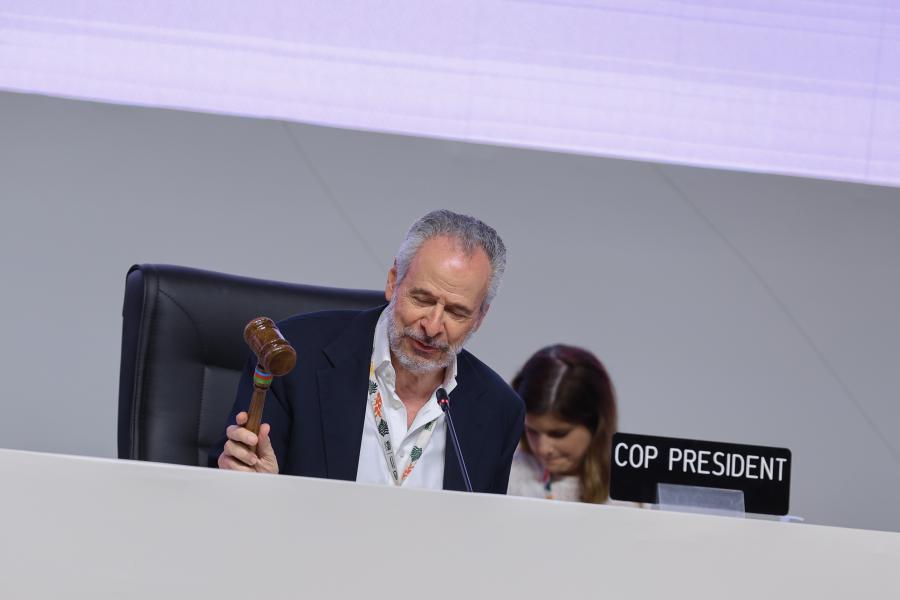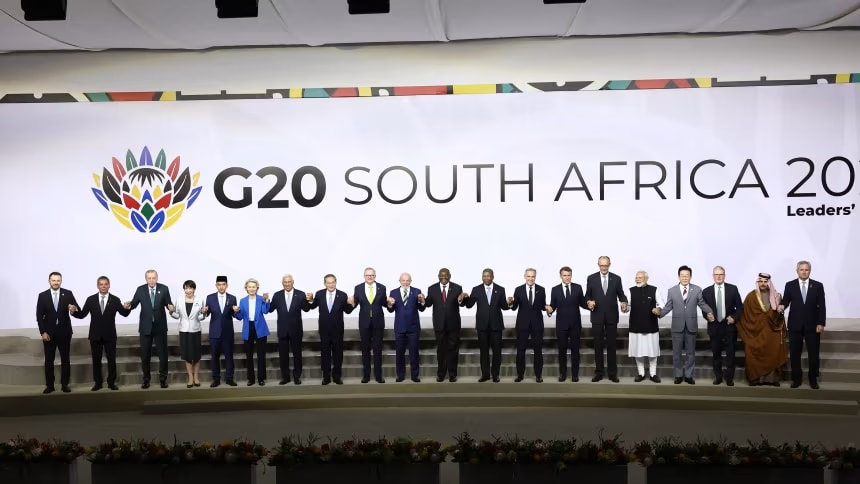So these two major summits – COP30 and the South Africa G20 have now come to an end. Much as was anticipated, neither ends in glory.
First the G20 in Johannesburg. Trump’s disapproval of South Africa and its President Cyril Ramaphosa has been all too evident since Ramaphosa’s visit to the White House. Not surprisingly, as noted in the first Post on the Summits, the Trump Administration had chosen to boycott the South Africa G20 Summit and insisted that no declaration could be issued as consensus was not possible. Well, the Trump Administration can insist but that doesn’t lead to adherence to the US insistence. As pointed out by CNN:
“A Group of 20 leaders’ summit in South Africa adopted a declaration addressing the climate crisis and other global challenges on Saturday after it was drafted without US input in a move a White House official called “shameful.””
“The declaration, using language to which Washington has been opposed, “can’t be renegotiated,” South African President Cyril Ramaphosa’s spokesperson told reporters, reflecting strains between Pretoria and the Trump administration over the event.”
““We had the entire year of working towards this adoption and the past week has been quite intense,” the spokesperson said.”
As President Ramaphosa concluded:
““We should not allow anything to diminish the value, the stature and the impact of the first African G20 presidency,” he said.”
And, further, the South Africa President made clear that he was not prepared to hand over hosting to the United States – that takes the reins in 2026, by passing it to an US embassy official. As Ellliot Waldman wrote at WPR:
“White House Press Secretary Karoline Leavitt shot back, accusing Ramaphosa of “running his mouth” and clarifying that Washington’s acting ambassador to South Africa, Marc Dillard, would attend only the closing session of the talks, where the U.S. would be recognized as the next rotating president of the G20 and the host of next year’s summit.”
“However, Ramaphosa’s spokesperson clarified that Ramaphosa “will not be handing over to a junior embassy official.””
A sour ending for sure.
As for the COP30 at Belém in Brazil, well, notwithstanding the energy, particularly of the EU and key European states, real success was not to be had. As described by Max Bearak and Lisa Friedman at the NYTimes:
“Global climate negotiations ended on Saturday in Brazil with a watered-down resolution that made no direct mention of fossil fuels, the main driver of global warming.”
“The final statement, roundly criticized by diplomats as insufficient, was a victory for oil producers like Saudi Arabia and Russia. It included plenty of warnings about the cost of inaction but few provisions for how the world might address dangerously rising global temperatures head-on.”
“A marathon series of frenetic Friday night meetings ultimately salvaged the talks in Belém, on the edge of the Amazon rainforest, from total collapse.”
“Oil-producing countries like Saudi Arabia were adamant that their key export not be singled out. They were joined by many African and Asian countries that argued, as they have in earlier talks, that Western countries bear unique responsibility in paying for climate change because they are historically responsible for the most greenhouse gas emissions.”
“Around 80 countries, or a little under half of those present, demanded a concrete plan to move away from fossil fuels. Outside of Europe, they did not include any of the world’s major economies.”
And though the 80 could not provide the roadmap to moving from fossil fuels, that had been hoped for, they did at least identify a path forward:
“After the gavel fell, André Corrêa do Lago, the Brazilian diplomat leading the talks, announced that his country would lead an independent effort to rally nations to develop specific plans for transitioning away from fossil fuels and for protecting tropical forests. The political effort would have no force of international law, but there was a round of polite applause from delegates.”
As a number of experts noted, the immediate way forward is impaired by a series of different countries in the face of the ‘consensus requirement’ in such multilateral efforts. Again from Max Bearak and Lisa Friedman quoting former Vice President Al Gore:
““Petrostates and their political allies are doing everything they can to try to stop the world from making progress on solving the climate crisis,” former Vice President Al Gore said in a statement. “They fiercely opposed what would have been the most important step forward at COP30: the development of a road map away from fossil fuels.””
In the face of such opposition – from the big CO2 emitters and the fossil fuel producers – it may require those determined to move the climate change efforts forward to accept consensus is not achievable and move forward with critical plurilateral efforts. As The Economist noted:
“The lacklustre outcome does not preclude the possibility of countries making progress on any of these fronts under their own steam. Many vowed that they would: Brazil said it would pursue the idea of two roadmaps, including within the G20, while Colombia and the Netherlands jointly announced that they would host an international conference on roadmaps next year.”
So on to Turkey and Australia for COP31.
Image Credits – Getty Images and IISD


